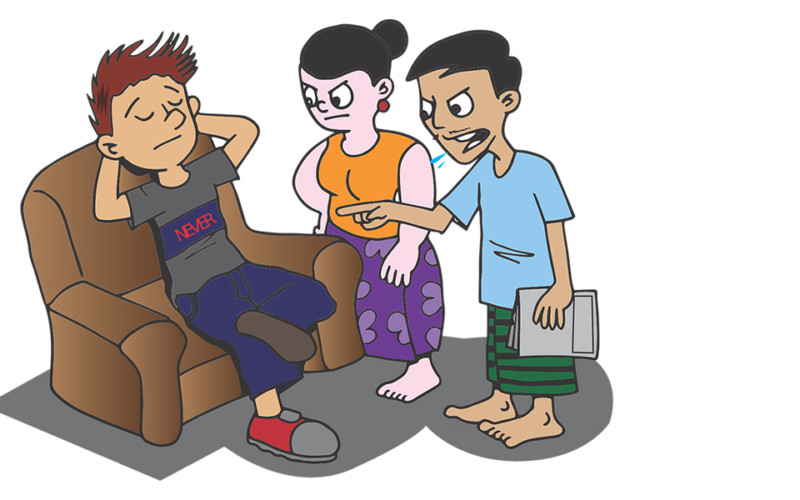The problem with talking about dysfunction and how to survive it is that there is no such thing as one type of dysfunctional family. Some families are violent, some have drug-related problems.
In other families, a lack of money could be the root cause of the problems, while in others, the parents might abuse a child with indifference. No matter what, coping and surviving dysfunctional families is the immediate concern for most people going through it.
Here are eight tips to cope with and survive all types of dysfunctional families. Read on!
Table of Contents
Tips to Surviving a Dysfunctional Family
1. Recognize your present is not your future
The first thing you should understand is that whatever you are going through or whatever you have been through is not your future.
I grew up in an era where beating children seemed to be perfectly normal. I was beaten at school and beaten at home. Many of my friends had the same dysfunctional families I did. The generally accepted view is the abused becomes the abuser, but this does not have to be true.
I have my own family now and I have never hit my children. In fact, I have probably only ever raised my voice to my kids half-a-dozen times in the last 15 years. I promised myself that my children would never live in fear as I did. So, no matter what your parents or siblings are like or what choices they made, you do not need to follow in their footsteps.
2. Remove yourself from the situation
Generally, living in dysfunctional families means knowing what’s going to happen most of the time. An alcoholic parent who comes home late at night will almost certainly be drunk. A violent parent, who hates their job and is looking for someone to blame, will pick on their children when they arrive home.
You can lessen confrontational situations by avoiding times and places where conflict arises. I used to go out with someone whose mother, when drinking gin and tonics, got very abusive to me and her daughter. So, we used to avoid going around her mother’s place in the evenings. If you can avoid situations that may turn unpleasant, then do so.
3. Don’t add fuel to the fire
When you have a drunk or angry parent coming home late at night, shouting at you and your siblings about how hard life is, try not to react. Dysfunctional families, who blame their kids for the way their lives, are delusional.
Their lives will always be bad because the quality of their lives depends on the unhappiness of others. It certainly has nothing to do with you. Don’t argue or talk back if you have parents like this. They are irrational and no matter what you say won’t help.
4. Tell your family how you feel
While I said above that you shouldn’t add fuel to the fire, that doesn’t mean you shouldn’t make it clear how you feel. When you’re young, this can be difficult but if you are a teenager, be brave and say what you think.
Obviously, you should choose a good time to do this. If you feel you could suffer physically from speaking out, then you should talk to your family while out in public. If a parent is drunk, wait until they are sober. Try to stay calm, even if you don’t feel like it.
5. Remember it’s never you
When you are young, everything seems so personal and the unpleasant things that people say to you can wound deeply. Sometimes, it can be a throw-away comment like “Go away” and at other times it could be a comment blaming you for everything. Both comments can hurt just as much even though they’re very different.
Remember, whatever someone says to you, whether a parent, grandparent or sibling, you are not responsible. Dysfunctional families feed on the pain of the abused. Do not start believing that the people who abuse you are right; they are not.
6. Get a puppy
I read this piece of advice a while back and it has always stuck with me as one of the best. If possible, get yourself a puppy. Actually, any pet will do; however, I think a puppy is best because your puppy will love you unconditionally and will always be happy to see you.
Moreover, I think there is something special about owning a puppy. You can reciprocate the unconditional love your puppy gives you. It’s a way to love something that loves you back and will remind you that you are loved and able to love. It is difficult to love a family member who treats you badly.
7. Keep a diary
One of the worst things about living in dysfunctional families is that there is often a feeling that you can’t talk to anyone. Everyone complains about their families so often we don’t take them seriously. Also, a lot of complaining these days seems to be a bit ‘first world problems’. Keeping a diary helps.
At the end of each day, write what you went through that day. It doesn’t matter what you write or even how you write it. Talking about things often helps but if you don’t have anyone to talk to, writing as if you’re talking to someone may do the job.
8. Accept your life as it is
Sadly, most people who live in dysfunctional families will continue to do so until they eventually move out. Depending on where you live, that could be when you are 16, 18, or whether you can emancipate yourself. Still, one thing is for sure, at some point, you will be able to free yourself from your family.
Try and prepare yourself for that day. If you can get a part-time job or go babysitting, then do it. Anything to earn money for the day you can finally leave your home. Of course, the added benefit is if you’re working in a part-time job away from your family, you are away from your family.
While writing this post, there were two things that struck me. Firstly, there are many types of dysfunctional families. Each family is different so there is no single overall solution.
Secondly, what also struck me was how many people said that living in a dysfunctional family was terrible but it made them stronger, determined not to repeat the mistakes of their parents or siblings. If nothing else, I hope you come away with the same resolve.





